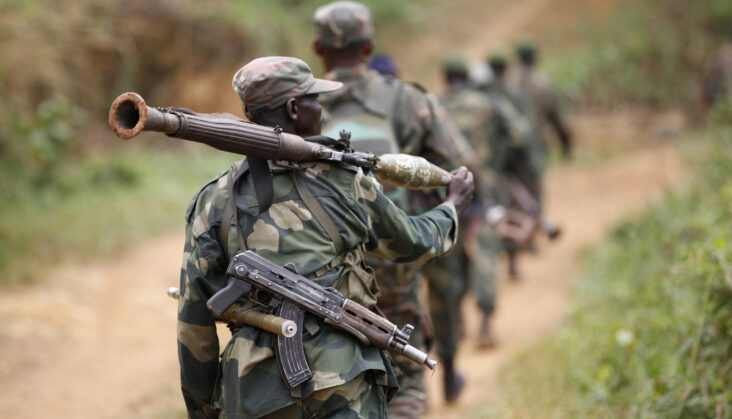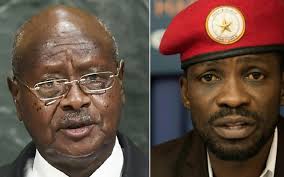Uganda’s democracy is facing a perilous decline, prompting concerns among politicians and researchers about the potential consequences. Such conclusions a recent Afrobarometer survey suggests.
The report reveals that while 62% of Ugandans express a commitment to a democratic system, only 34% believe that Uganda currently experiences full-fledged democracy. A significant gap is observed between the desire for fair elections (83%) and the perception of the last election as free and fair (55%).
Uganda is a constitutional republic led since 1986 by President Yoweri Museveni of the National Resistance Movement party. In 2021, voters re-elected Museveni to a sixth consecutive five-year term and returned a National Resistance Movement majority to the unicameral parliament. The elections fell short of international standards and included allegations of arbitrary killings and disappearances of opposition supporters, disenfranchisement and voter intimidation, harassment of the opposition, closure of social media websites, and lack of transparency and independence in the Electoral Commission.
The national police maintain internal security, and the Ministry of Internal Affairs oversees police. The president detailed army officials to leadership roles within police and the executive, including government ministries. The law allows the military to support police operations to maintain internal security. The Ministry of Defense oversees the army. Civilian authorities maintained effective control over the security forces. There were reports that members of the security forces committed numerous abuses, with only a few low-ranking officers purportedly punished.
According to the State Department data, significant human rights issues included credible reports of:
- unlawful or arbitrary killings, including extrajudicial killings.
- forced disappearance;
- torture and cases of cruel, inhuman, or
- degrading treatment or punishment by government agencies.
- harsh and life-threatening prison conditions;
- arbitrary arrest or detention; political prisoners or detainees.
- serious problems with the independence of the judiciary.
- arbitrary or unlawful interference with privacy; punishment of family members for alleged offenses by a relative;
- serious abuses in a conflict, including unlawful civilian harm.
- serious restrictions on freedom of expression and media, including violence, threats of violence, and unjustified arrests or prosecution of journalists, and censorship.
- serious restrictions on internet freedom.
- substantial interference with the freedom of peaceful assembly and freedom of association, including overly restrictive laws on the organization, funding, or operation of nongovernmental organizations and civil society organizations.
- serious flaws with citizens’ ability to determine their government through free and fair elections.
- serious and unreasonable restrictions on political participation.
- serious government corruption; serious government restrictions on or harassment of domestic and international human rights organizations.
- lack of investigation of and accountability for gender-based violence, including domestic and intimate partner violence, sexual violence, and child, early, and forced marriages. The law criminalizes rape of women, which is punishable by life imprisonment or death. The law does not address spousal rape.
Authorities detained numerous opposition politicians and activists on politically motivated grounds. Authorities released many without charge but charged others in military courts with crimes such as illegal possession of firearms, “offensive communication,” and inciting violence. According to human rights lawyers, military courts were less independent than their civilian counterparts and allowed authorities to hold detainees indefinitely. No reliable statistics on the total number of political detainees or prisoners were available. Human rights organizations reported that prison authorities blocked them from visiting political prisoners and detainees as part of measures to stop the spread of COVID-19. The International Committee of the Red Cross and the UHRC reported that authorities granted them access to places of detention.
Under the new legislation, anyone who engages in same-sex activity or identifies as lesbian, gay, bisexual, transgender or queer (LBGTQ) could face up to 10 years of imprisonment. It also criminalises what it calls the “promotion” of homosexuality and “conspiring” to engage in same-sex relations. A person who is convicted of grooming or trafficking children for purposes of engaging them in homosexual activities faces life in prison while individuals or institutions which support or fund LGBTQ rights activities or organisations or publish, broadcast and distribute pro-gay media material and literature, also face prosecution and imprisonment.
Thus, journalists and publishers face prosecution and imprisonment for publishing, broadcasting or distributing any content that advocates for gay rights.
The law also advocates for a death penalty for “aggravated homosexuality.” This includes sexual abuse against a child, a person with disability or vulnerable people or in cases where a victim of homosexual assault is infected with a lifelong illness.
A legislator lying frail on a hospital bed after a long detention.
The state of human rights in Uganda has never been uplifting but it appears to be sinking to a record low, according speakers at the Human Rights Convention held on Nov.15 in Kampala. Speakers raised issues of torture, illegal detention and the cruelty of Uganda’s criminal justice system.
The criminal justice system has been misused and abused in Uganda.
The rights to freedom have been wiped away. There has been an attack on rights by the police and security agencies. The worsening state of rights abuse is ironic due to passage of recent laws like the Prevention and Prohibition of Torture Act and the Human Rights Enforcement Act.
Civic space has continued to shrink in the country.
Majority of citizens believe that human rights and rule of law as well as freedom of assembly and association are the two most restricted civic space dimensions.
Several laws aimed at suppressing dissenting voices and silencing political opposition including the Public Order Management Act (2013) the NGO Act (2016), the Penal Code Act (1950), the Anti-Terrorism Act (2002), the Police Act, cap 303 and the Press and Media Act (2000). Several people , especially opposition politicians have been dispersed and others arrested by police for allegedly violating the Public Order Management Act when they held “unlawful” assemblies. The NGO Act 2016 which now primarily governs the NGOs in Uganda has continued to narrow the civic space for free speech especially for NGOs advocating for democracy in the governing of the country and the respect for human rights.The Computer Misuse Act as one of the biggest tools used to stifle civic space in Uganda. The introduction of the Computer Misuse Act has ended up curtailing civic space over cyber spaces. For example, the vaguely worded section 25 of the Computer Misuse Act 2011 prohibits “offensive communication” and threatens fines and imprisonment to anyone using “electronic communication to disturb or attempt to disturb the peace, quiet or right to privacy of any person. This legislation could potentially lead to removals of content and the criminalization of user comments.


This post was originally published on this site be sure to check out more of their content.








